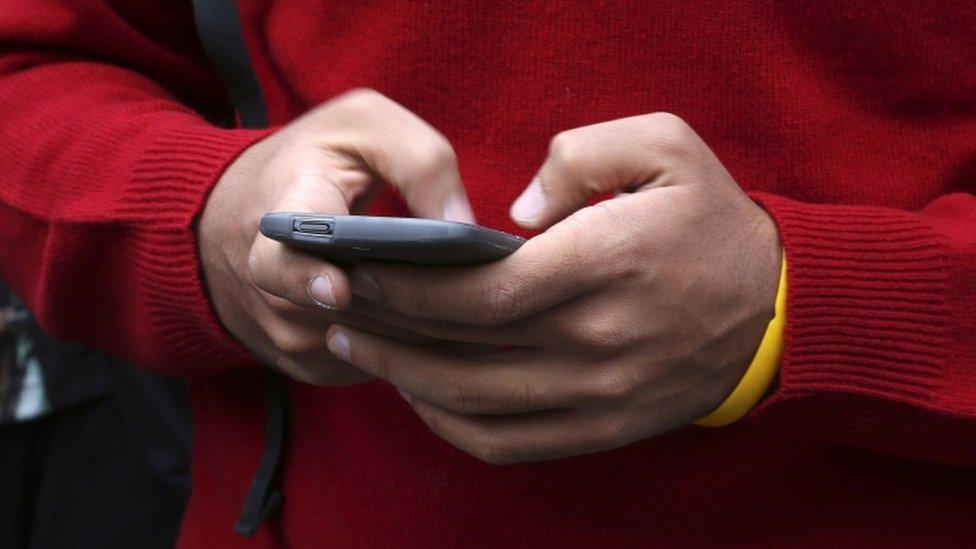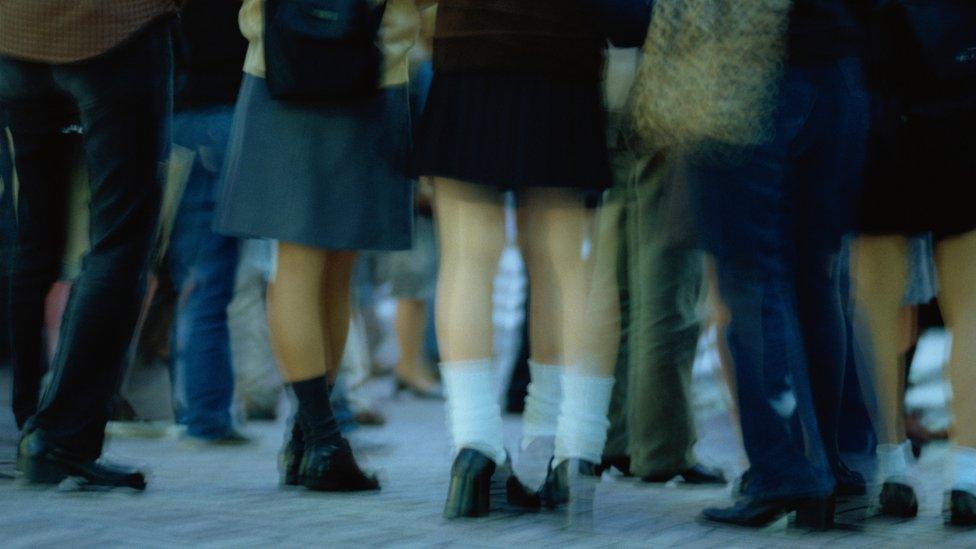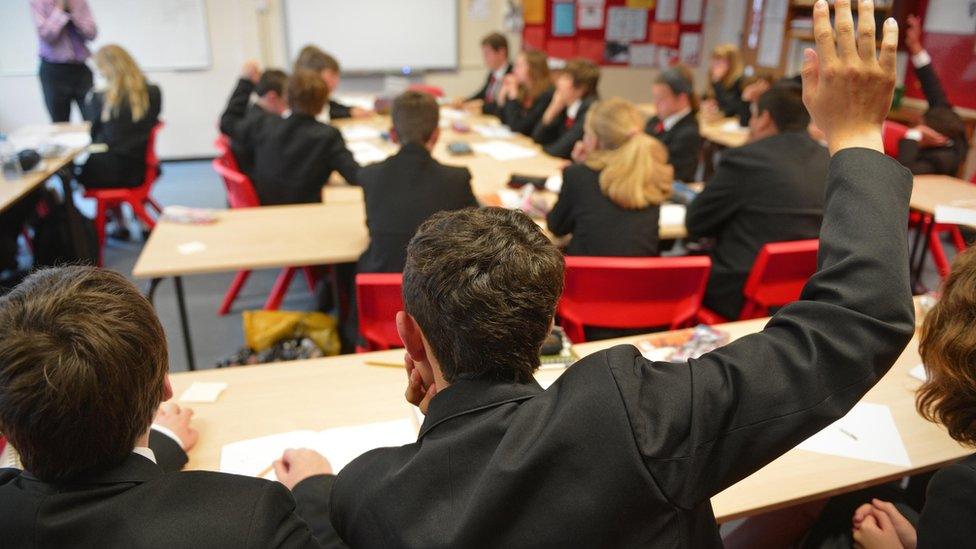Hundreds of children in Wales sexting, police figures show
- Published

Barnardos Cymru said better education was needed to alert young people to the dangers of sexting
Children as young as eight years old in Wales have been investigated by police for sexting, new figures show.
Officers in the North Wales and South Wales Police force areas have spoken to 166 young people, including 23 under 12s, for sending explicit images of themselves to others since 2013.
Ceri Evans, of Barnardo's Cymru, said the issue was linked to an increased use of smart phones and social media.
But he added most children did not know what they were doing was wrong.
It is illegal to possess, take or distribute explicit images of someone who is under 18, including of yourself.

Figures obtained by the BBC, show South Wales Police has investigated 87 under 17-year-olds in the past three years.
This included a boy and girl aged eight, but no further action was taken against them. The criminal age of responsibility in England and Wales is 10.
In north Wales, officers spoke to 79 young people, including children as young as 11 and 12.
Dyfed-Powys Police and Gwent Police did not respond to the request for information.
Mr Evans said while the majority of young people in Wales were not sexting, authorities should not become complacent and should make sure children knew the dangers of their actions.
He said: "I think part of the reason is smart phones and social media and the internet are now a way of life for children and young people, so it's understanding that as use of these technologies emerge, use of behaviours like this are going to increase.
"I think part of this is about education for children. I think part of the issue is perhaps children don't understand the consequences of sharing personal information or images like this via their smart phones.
"From a personal point of view in terms of opening themselves up for bullying or exploitation but also from a legal perspective."
- Published11 July 2017

- Published15 June 2016

- Published22 March 2016

- Published27 February 2017
